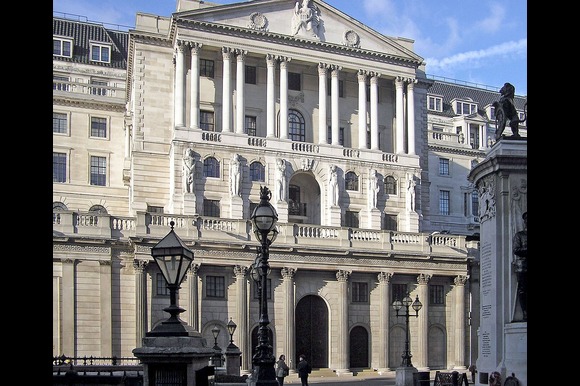Officials Signal Gradual Decline in Borrowing Costs
The Bank of England has opted to keep its base interest rate at 4%, following a closely contested 5-4 vote, as policymakers concluded that inflation in the UK has now peaked. The central bank indicated that borrowing costs are “likely to continue on a gradual downward path” in the coming months, reflecting a cautiously optimistic outlook for the economy.
Governor Bailey Urges Patience Before Rate Cuts
Bank Governor Andrew Bailey emphasised that now was not the time to rush into rate cuts, stating he would “prefer to wait and see” whether price rises continue to ease through the remainder of the year. His remarks underline a more measured approach, even as headline inflation continues to trend downward.
The decision comes just weeks ahead of the government’s Budget on 26 November, where growing speculation suggests Chancellor Rachel Reeves could move to increase taxes. Such a move would mark a significant break from Labour’s key manifesto pledge not to raise income tax, National Insurance, or VAT.
Chancellor Rachel Reeves Reacts to Decision
Reacting to the Bank’s announcement, Reeves said the latest forecasts “show that inflation is due to fall faster than previously predicted.”
“At the Budget later this month, I will take the fair choices necessary to build the strong foundations for our economy,” she said. “That means continuing to cut waiting lists, reduce the national debt, and lower the cost of living.”
Inflation Remains Above Target but Appears to Have Peaked
Inflation currently stands at 3.8%, nearly double the Bank’s target of 2%. While this marks a decline from previous highs, it still signals that price pressures remain elevated. The Bank clarified that a fall in the inflation rate does not imply that prices are dropping—rather, they are rising at a slower pace.
In its quarterly economic update, the Bank confirmed that inflation has “peaked,” but also noted there is “no sign of increasing consumer confidence,” with households remaining cautious and prioritising saving over spending.
Consumers Staying Frugal as Costs Remain High
According to the Bank’s report, consumers are “focused on value,” with many adjusting spending habits to cope with persistent price pressures.
Supermarkets reported strong sales growth, though largely due to price increases rather than higher sales volumes. The Bank projected that food price inflation will stay elevated through 2025 before slowing in 2026, driven by rising global agricultural costs.
Households are cutting back by buying cheaper produce and reducing meat consumption, while childcare costs and caring responsibilities are forcing some individuals to work fewer hours—or stop working entirely.
The Bank added that fashion retailers are facing declining sales due to the growing popularity of second-hand markets, while restaurants and hotels are reporting “weaker demand” and shorter customer stays.
Monetary Policy Balancing Act
The Bank of England—an institution independent of the government—sets interest rates to control inflation.
Changes in the base rate affect borrowing costs on mortgages, loans, and credit cards, as well as returns on savings.
The Bank’s latest projections show inflation is expected to fall to around 3% by early next year, before gradually returning toward the 2% target by 2027. Policymakers said their decision to hold rates at 4% reflects slowing wage growth and easing price pressures in the services sector.
However, they cautioned that both indicators must decline further for the Bank to be “confident that inflation will return to target.”
Economists See Potential for a Rate Cut in December
Yael Selfin, chief economist at KPMG UK, said the narrow vote “underscores the uncertain backdrop policymakers are navigating ahead of the Budget.”
However, she added that the Bank’s language suggests “the door remains open for a rate cut at the December meeting” if data continue to show inflation easing and wage growth stabilising.
UK Economic Growth and Employment Outlook
In its latest Monetary Policy Report, the Bank forecast economic growth of 1.5% this year, before dipping to 1.2% in 2026. Growth is expected to rebound to 1.6% in 2027 and 1.8% in 2028.
The unemployment rate, meanwhile, is projected to rise to 5% in the final quarter of 2025 and remain around that level through 2028.
The government has identified economic growth as a central goal in its effort to raise living standards and support long-term fiscal stability.
Balancing Inflation Control with Economic Risks
The Bank reiterated that higher interest rates are designed to curb inflation by making borrowing more expensive—thereby discouraging excessive spending and cooling demand.
However, this approach carries risks: prolonged high rates can weigh on investment, slow job creation, and dampen consumer confidence.
As the UK economy steadies after years of inflationary pressure, the Bank’s challenge now lies in striking a balance between stabilising prices and sustaining growth, with policymakers signalling caution ahead of the upcoming Budget.






